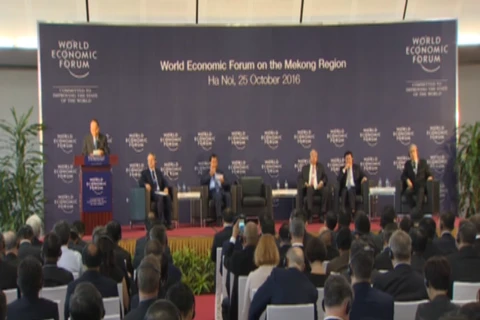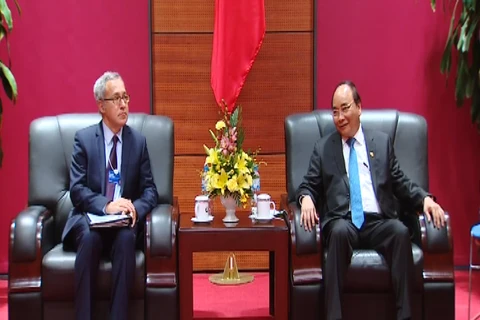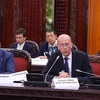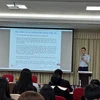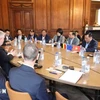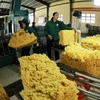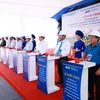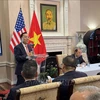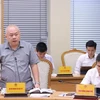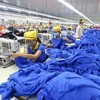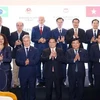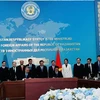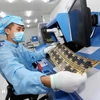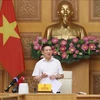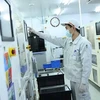Hanoi (VNA) – The Mekong region is a dynamic development zone in Asia with some economies posting high growths driven by reforms and international integration.
A World Economic Forum on the Mekong Region held on October 25 in Hanoi gathered opinions from leaders of participating countries and the World Economic Forum to seek to step up the region’s synergy for achieving higher growth.
Vietnam’s Prime Minister Nguyen Xuan Phuc noted that Mekong countries all boast advantages in export of rice, textile and garment, footwear, aquatic products, agricultural and forestry produce, which provide a foundation for them to work together to raise the quality and values of their products.
Accordingly, the construction and efficient exploitation of infrastructural facilities of the East-West Corridor, the North-South Corridor and the Southern economic corridor will help reduce transport and logistics costs and improve the competitiveness of the five countries. Cooperation will allow each Mekong nation bring into full play its advantage, he said.
Richard Samans, Member of the Managing Board at the World Economic Forum and Head of the Forum’s Centre for Global Agents said the value of foreign direct investment coming into the region that is growing year on year is testament to the increasingly warm welcome that investors feel here.
However, he pointed out that the Mekong nations are deepening their integration into the global economy but they have not yet made deep progress in integrating with each other.
He suggested the five Mekong countries becoming a more integrated market, a more integrated production base, and connecting different skills, resources and cost structure to create synergy for regional integration.
For Myanmar President Htin Kyaw, cooperation and connectivity in the region play an extreme important role in spurring economic growth, reducing poverty, narrowing the rich-poor gap, increasing productivity and employment, enhancing institutions and seeking solutions to global issues.
The countries should focus on actualising cooperative opportunities to tackle issues facing the Mekong region while cultural exchanges will promote friendship and mutual understanding between regional people, he said.
Lao Prime Minister Thongloun Sisoulith expressed his hope that the Mekong countries will adopt measures that nurture connectivity to create more opportunities for cooperation and they need to work together to ensure coordination with outside countries on the path towards a developed region.
Thailand’s Deputy Prime Minister Somkid Jatusripitak said broader and deeper economic integration economic integration will result in the expansion of trade and investment opportunities as well as connect all sectors into regional and global value chain which will improve livelihood, create employment and more income for the people, lessen gaps both domestically and globally and enable all Mekong sub-regional country to prosper at the same pace.
He noted that the development of a seamless and comprehensive connectivity, both hardware and software, will serve as a solid foundation and platform for sustainable development and inclusiveness, a prerequisite for long-term promotion of regional economic integration.
Cambodia’s Prime Minister Samdech Techo Hunsen envisaged the Mekong regional as a major regional and global centre of production. By 2030, the five countries will have population of about 260 million whereas 65 percent are active labour, an important foundation for developing a regional industry.
Towards the vision, the countries must focus on maintaining regional peace and stability, and join hands in addressing key bottlenecks to regional competitiveness by dealing particularly with physical infrastructure, energy and digital connectivity, free and effective movement of trade and investment as well as the development of human capital.
He also referred to cross-border cooperation and the active role of the private sector in infrastructure development through the PPP projects.
The WEF-Mekong, initiated by Vietnam, was expected to offer new cooperation opportunities for leading firms in the region and the world, thereby helping to attract capital for infrastructure development and connectivity enhancement in the Mekong region.
This is the first time WEF has held a separate forum on the Mekong region, reflecting the interest of its member corporations in the region’s potentials.-VNA




